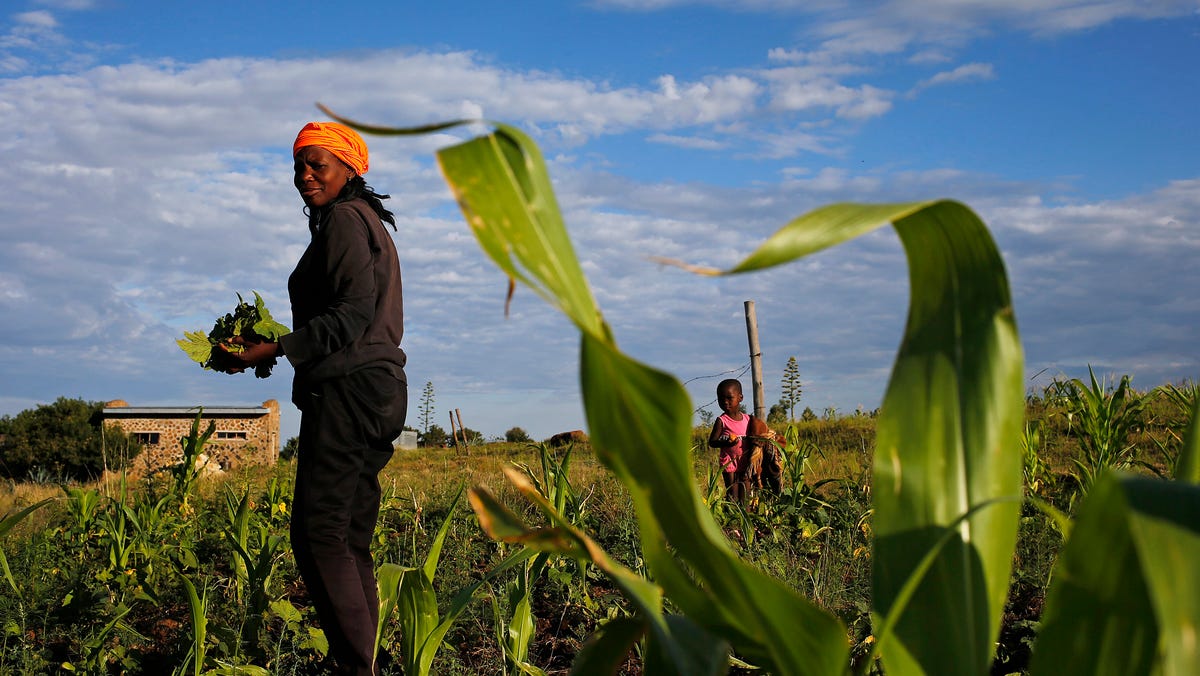Lesotho's Economy Under US Tariff Pressure: A Delicate Balancing Act
Lesotho, a small, mountainous kingdom entirely surrounded by South Africa, finds itself navigating a complex economic landscape, significantly impacted by recent US tariff pressures. While not a major player in global trade, its economy, heavily reliant on exports, particularly textiles to the US market under the African Growth and Opportunity Act (AGOA), is acutely vulnerable to shifts in international trade policy. This article delves into the current state of Lesotho's economy, the challenges posed by US tariffs, and the strategies the nation is employing to mitigate the negative effects.
The AGOA Advantage: A Double-Edged Sword
Lesotho's economy has long benefited from the AGOA, which provides duty-free access to the US market for certain goods. This preferential treatment has been crucial for its textile industry, a major contributor to GDP and employment. However, this dependence creates a vulnerability. Fluctuations in US trade policy, including increased tariffs on imported goods, directly impact Lesotho's ability to compete. The recent increase in tariffs on certain products, while not directly targeting Lesotho, has created a ripple effect throughout the global textile market, impacting demand and pricing.
Key Impacts of US Tariff Pressure:
- Reduced Export Revenue: Decreased demand for Lesotho's textile exports translates to lower revenue for businesses and the government. This directly impacts economic growth and potentially leads to job losses.
- Increased Competition: The tariff adjustments have shifted the competitive landscape, making it harder for Lesotho's textile manufacturers to compete with producers in other countries that may enjoy more favorable trade agreements.
- Supply Chain Disruptions: Changes in global trade patterns caused by tariffs can disrupt established supply chains, impacting the availability of raw materials and impacting production timelines.
Navigating the Challenges: Lesotho's Response
Faced with these challenges, Lesotho is actively pursuing several strategies to strengthen its economic resilience:
Diversification of Exports: A Crucial Strategy
Lesotho is actively working to diversify its export base, reducing its dependence on the US market. This involves exploring new markets in Africa and beyond, focusing on products beyond textiles, such as agricultural goods and potentially, high-value manufactured items. This strategy, while long-term, is crucial for building economic resilience.
Enhancing Competitiveness: Investing in Infrastructure and Skills
Investments in infrastructure, particularly improving transportation and communication networks, are crucial for enhancing Lesotho's competitiveness. Similarly, investments in education and skills development are paramount to equipping the workforce with the necessary skills for a more diversified economy.
Strengthening Regional Partnerships: Leveraging SADC
Lesotho's membership in the Southern African Development Community (SADC) presents opportunities for regional cooperation and trade. Strengthening these partnerships can provide access to new markets and support for economic diversification efforts.
The Road Ahead: Uncertainty and Opportunity
The future of Lesotho's economy remains uncertain in the face of continued US tariff pressure and global economic volatility. However, the challenges also present opportunities. By embracing diversification, investing in human capital, and strengthening regional collaborations, Lesotho can build a more resilient and sustainable economy, less dependent on the vagaries of global trade policy.
Further Reading:
- [Link to Lesotho's Ministry of Trade and Industry website (if available)]
Call to Action: What strategies do you believe are most crucial for Lesotho to navigate these economic challenges? Share your thoughts in the comments below.
